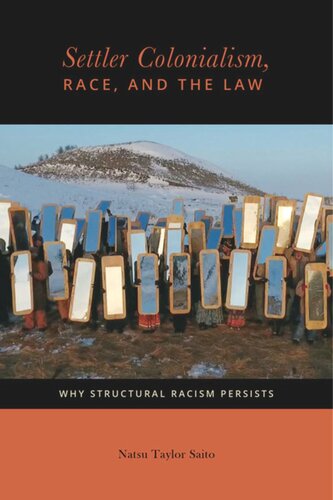

Most ebook files are in PDF format, so you can easily read them using various software such as Foxit Reader or directly on the Google Chrome browser.
Some ebook files are released by publishers in other formats such as .awz, .mobi, .epub, .fb2, etc. You may need to install specific software to read these formats on mobile/PC, such as Calibre.
Please read the tutorial at this link: https://ebookbell.com/faq
We offer FREE conversion to the popular formats you request; however, this may take some time. Therefore, right after payment, please email us, and we will try to provide the service as quickly as possible.
For some exceptional file formats or broken links (if any), please refrain from opening any disputes. Instead, email us first, and we will try to assist within a maximum of 6 hours.
EbookBell Team

0.0
0 reviewsHow taking Indigenous sovereignty seriously can help dismantle the structural racism encountered by other people of color in the United States
Settler Colonialism, Race, and the Law provides a timely analysis of structural racism at the intersection of law and colonialism. Noting the grim racial realities still confronting communities of color, and how they have not been alleviated by constitutional guarantees of equal protection, this book suggests that settler colonial theory provides a more coherent understanding of what causes and what can help remediate racial disparities.
Natsu Taylor Saito attributes the origins and persistence of racialized inequities in the United States to the prerogatives asserted by its predominantly Angloamerican colonizers to appropriate Indigenous lands and resources, to profit from the labor of voluntary and involuntary migrants, and to ensure that all people of color remain “in their place.”
By providing a functional analysis that links disparate forms of oppression, this book makes the case for the oft-cited proposition that racial justice is indivisible, focusing particularly on the importance of acknowledging and contesting the continued colonization of Indigenous peoples and lands. Settler Colonialism, Race, and the Law concludes that rather than relying on promises of formal equality, we will more effectively dismantle structural racism in America by envisioning what the right of all peoples to self-determination means in a settler colonial state.